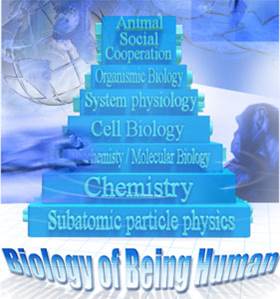BIO 358 Biology of Human Social & Sexual Behavior

SUMMER 2024 Schedule
SUMMER 2024-Extended Session 1
May 20th – July 12th, 2024
Faculty: Paul M. Bingham, PhD; Joanne Souza, PhD; Shawn Stuart, PhD
Stony Brook Students: DEC H Implications of Science, Upper Division (SBC: ESI-Evaluate & Synthesize Researched Information and STAS-Understand Relationships
between Science or Technology and the Arts, Humanities, or Social Sciences.)
Non-Stony Brook Students – Check with your Institution for Transfer Info.
Click here for Summer 2024 Syllabus*
This course is an asynchronous online course except for the Three Mandatory Synchronous exams given in the evening as listed below. STUDENTS MUST HAVE RELIABLE INTERNET, A COMPUTERS, A WEBCAM AND A MICROPHONE TO TAKE THIS COURSE.
MANDATORY Exam 1: Thursday, June 6th 6:30 to 8:00 PM
MANDATORY Exam 2: Monday, June 24th 6:30-8:00 PM
MANDATORY Exam 3: Tuesday, July 9: 6:30-8:30 PM
To Register go to:
https://www.stonybrook.edu/summer/
Any student who, after registering at Stony Brook University and accessing Solar, needs permission to register for this course should contact Lynette Giordano at Lynette.Giordano@stonybrook.edu for permission.
Major objectives of this course:
1. Explore a powerful evolutionary theory of the origin of human uniqueness. Covered
are the implications of this theory for our biological and social properties including
the evolution of our large brains, language, unique sexual behavior, our history,
economics, politics and all empirical evidence supporting this theory. The scientific
implications are profound and unite the social and natural sciences into a coherent
whole.
2. Engage students of all disciplines in the process of science – learn and participate in how we define theories, collect evidence and
use that evidence to test these theories by subjecting them to skeptical public questioning.
In this portion of the course, via discussions, you will be asked to critically think
and debate varying interpretations of the empirical evidence in relation to the science
being brought to your attention.
See http://www.deathfromadistance.com/ for more content information
How is the course administered?
The course is administered through the Brightspace learning management system. Detailed administrative procedures will be given during the online video orientation.
This course requires good time management skills, excellent scheduling skills, and ability to work on your own as well as being part of an online group.
Topics Covered:
[TOPIC 1] Introduction to Human Uniqueness and Social Coercion Theory
[TOPIC 2] We know what life is – a particular case of chemistry
[TOPIC 3] Evolving genes and the animals they build
[TOPIC 4] How and how fast does natural selection actually work in sexual animals?
[TOPIC 5] How evolution produces animals cooperation
[TOPIC 6] Kin-selected behaviors in humans
[TOPIC 7] Kinship-independent social cooperation – the fundamental, unique human adaptation
[TOPIC 8] How and when we became human - fossil record 1
[TOPIC 9] How and when we became human - fossil record 2
[TOPIC 10] The human village and life history evolution
[TOPIC 11 & 12] Sexuality in the human village 1 and 2
[TOPIC 13] Human language – cooperation and information exchange – 1
[TOPIC 14] Human language – cooperation and information exchange – 2
[TOPIC 15 & 16] Culturally transmitted information and the uniquely human mind 1 and 2
[TOPIC 17] Introduction to a powerful new theory of history that emerges from Social Coercion Theory
[TOPIC 18] The behaviorally modern human revolution as an historical process
[TOPIC 19] The bow, and the Neolithic ("agricultural") revolutions
[TOPIC 20] Body Armor, shock weaponry and the rise of the archaic states
[TOPIC 21] Democratization, hiearchy, and social psychology
[TOPIC 22] Gunpowder and the emergence of the "modern state"
[TOPIC 23] Aircraft, missiles and the pan-global human coalition
[TOPIC 24] Final considerations - The contemporary world and a sustainable human future
